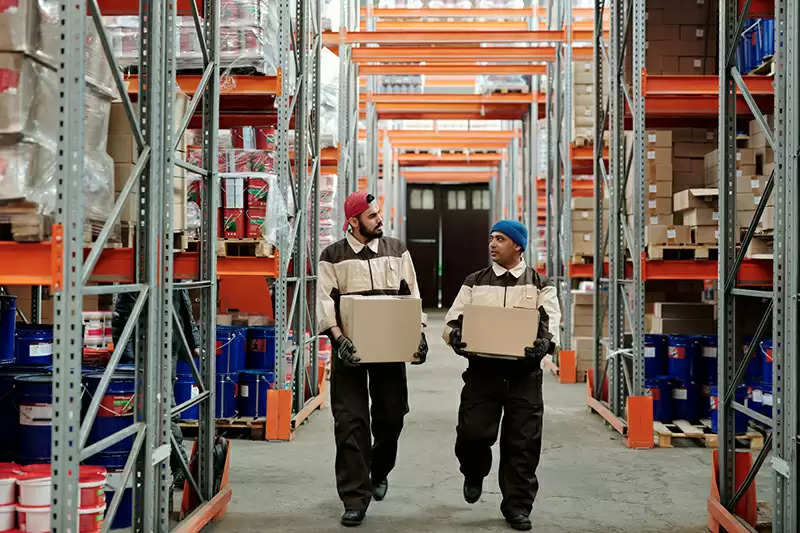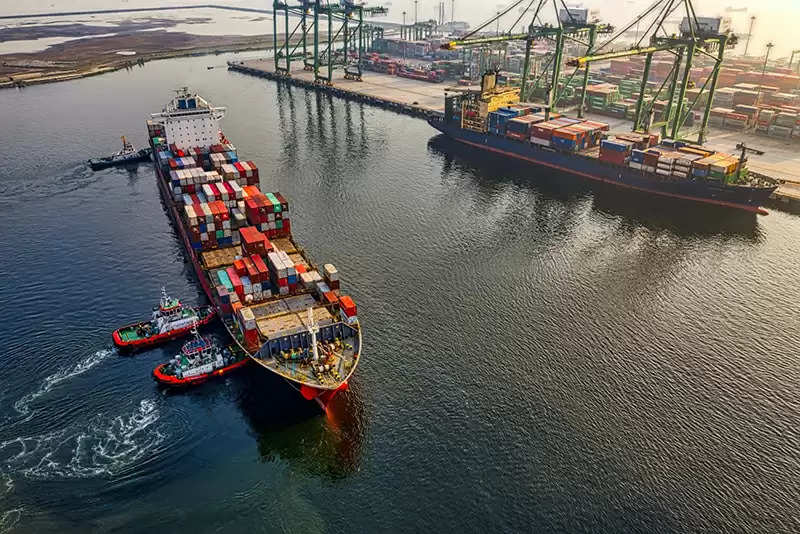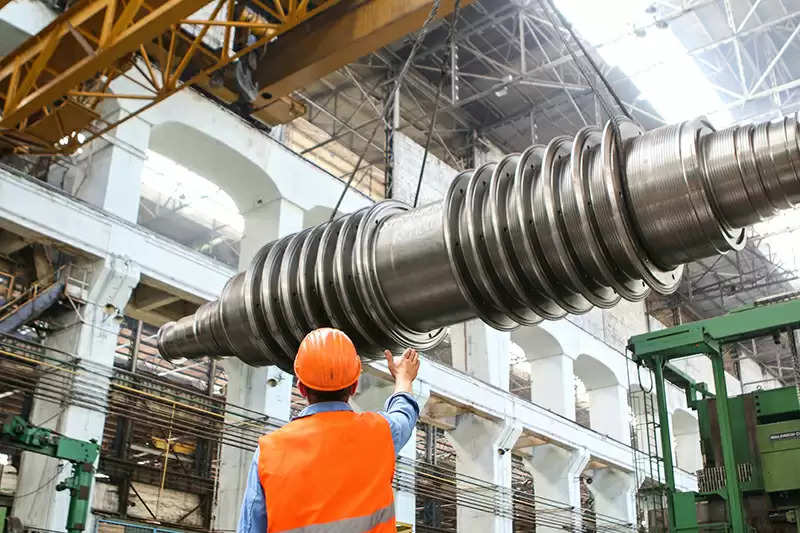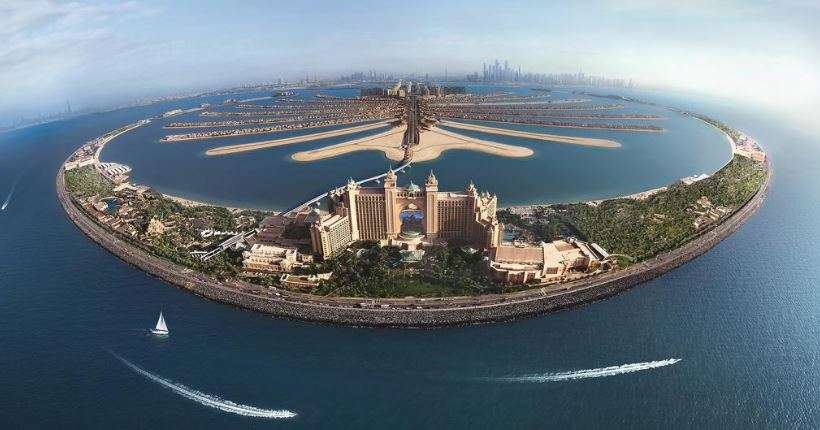Why Indian MSMEs are choosing Dubai to expand their global presence
As the global economy continues to evolve, Micro, Small and Medium scale enterprises are becoming increasingly important for driving economic growth and development. Indian MSME enterprises, often referred to as the backbone of the Indian economy, are now looking to expand beyond the domestic markets by choosing Dubai as their preferred destination for global expansion.

Dubai’s business-friendly operating environment, an open and transparent taxation framework coupled with a high consumer adoption rate, a relatively low cost of customer acquisition rate and access to a large customer base due to its strategic location has made it the preferred hub for global expansion, attracting a slew of Indian micro, small and medium enterprises.
Dubai with its stability, government effectiveness and reliability, provides for perfect access to the Middle Eastern and North African markets (MENA) with over 1 billion customers, which is one of the major reasons why Indian MSMEs are looking to expand their global footprint through Dubai.
Besides, there has been a significant improvement in the trade links between African nations and the UAE over the past decade, which has resulted in tremendous growth for the region with a vision for continued growth. The city further has an untapped potential to double its exports to African nations.
Dubai’s strategic location
Dubai's central location makes it a gateway not only to the Middle East region but also to Europe, Africa and Asia. Located strategically between the East and the West, Dubai continues to lure many businesses with its enabling physical infrastructure that facilitates import and export via land, sea, and air.

Being the maritime hub for the region, with its long coastline and Jebel Ali port - the world's largest man-made port and the busiest in the Middle East, Dubai offers unparalleled trading opportunities. The city of Dubai is also a global aviation hub, with the busiest airport in the world for international passenger traffic, providing businesses with unprecedented reach and access to global markets. Almost two-third of the global population is within an 8-hour flight from Dubai.
The UAE and Dubai are not just looking to be a gateway to the region, but rather to the entire world. “We are no longer a gateway to the region but the whole world, and we ensure most of the global trade comes from us", said Dr Thani bin Ahmed Al Zeyoudi, UAE Minister of State for Foreign Trade at the World Green Economy Summit.
During the summit, he also talked about how the UAE plans to target G7 countries to create Comprehensive Economic Partnership Agreements (CEPA). “By 2050, the current G7 is going to be totally changed. There are going to be new G7 emerging economies – India, Indonesia, Turkey, Russia, South Korea, Mexico and South Africa. These countries are going to almost double the G7 now", said Al Zeyoudi. "That is why we picked many of those for the CEPA (Comprehensive Economic Partnership Agreement). We signed CEPA with India and are pursuing it with others,” he added.
The India-UAE Comprehensive Economic Partnership Agreement (CEPA) was signed on February 18, 2022 during the virtual summit attended by Indian Prime Minister Narendra Modi and President of the UAE Sheikh Mohamed bin Zayed Al Nahyan.
During April-November 2022, the bilateral trade between the two countries increased to $57.8 billion from $45.3 billion in the same period last year, recording an impressive growth of 27.5
percent in percentage terms and a notable increase of $12.5 billion in value terms. During the same period, India's exports to the UAE saw a remarkable growth of 19.32 percent, reaching $20.8 billion from $17.45 billion, an increase of $3.35 billion in value terms.
Dubai-India collaboration initiatives
Indeed, with India and the UAE's long history and relations, Indian businesses can profit from a landscape that encourages growth, innovation, and technological adoption while lowering entrance barriers. At Dubai Expo 2020, a new initiative called the Global India Collaborative (GIC) was launched with the aim of helping Indian MSMEs find new markets and investments.

"Many bridges are required to be built between the Indian industry and the world in order to globalise our businesses by making them adopt global best practices and making them globally competitive. GIC is one such bridge. It will help India realise Prime Minister Narendra Modi's dream of making India a five trillion-dollar economy," said Santosh Mangal, Global President of GIC.
With Dubai's large business community, Indian enterprises also stand to gain from the sharing of insights, solutions, and access to greater funding for growth. Additionally, with the national strategies for both countries focusing on promoting the use of innovative manufacturing and cutting-edge technology, creating sustainable solutions, and boosting research and development across sectors, initiatives like CEPA have further strengthened the strategic alliances and increased opportunities across sectors.
Business-friendly destination
Dubai's reputation as a worldwide hub for business and innovation originates from a corporate mindset tailored to commerce, lower startup costs, and the establishment of globally competitive, sector-specific ecosystems.
Another major catalyst driving businesses to Dubai is the visa offerings, as its visa laws and regulations are more relaxed than those of the US, Singapore, and the UK. Dubai's golden visa system offers long-term business visas, and its remote visa system offers even more opportunities for businesses to stay in Dubai even when working from outside the country.
The city’s vision for innovation-led growth and its conducive and business friendly environment with provision for several support programs and subsidies also make it an attractive destination for businesses of all sizes. Dubai offers businesses state-of-the-art warehousing, strong multimodal transport capabilities, and a highly skilled workforce, to ensure that trade keeps growing.
“Vice President and Prime Minister of the UAE and Ruler of Dubai His Highness Sheikh Mohammed bin Rashid Al Maktoum’s vision for innovation-driven growth has made Dubai a magnet for investments from the world’s foremost players in industries driving the future of the global economy. Dubai has created a dynamic enabling infrastructure and ecosystem for the information technology industry along with regulatory frameworks designed to support innovation, entrepreneurship and business expansion,” His Highness Hamdan Bin Mohammed Al Maktoum, Crown Prince of Dubai.
The UAE also ranks No. 1 in the Middle East and North Africa region and 11th globally in the World Bank’s Logistics Performance Index (LPI), a global benchmarking tool that measures the efficiency of a country’s trade logistics chain as well as the challenges and opportunities they face in their performance. The six components of the LPI, the latest edition of which was released in 2018, covers infrastructure, customs, quality of logistics services, ease of arranging shipments, timeliness, and tracking and tracing.
Dubai has also set up special economic zones for international businesses, including the popular Dubai International Financial Centre (DIFC), which offers companies 100% ownership and a 50-year guarantee of no tax on corporate income or taxes.
Dubai: Global business destination
Today, the city has become a global melting pot, with a large Indian diaspora, and continues to attract a large population of skilled workforce because of its global reputation and higher income. Indian MSMEs are among the many businesses around the world that have recognized the potential of Dubai and are choosing it as their preferred destination for expanding their global footprint.
Disclaimer: This article is a part of featured content series on Business in Dubai
To join us on Facebook Click Here and Subscribe to UdaipurTimes Broadcast channels on GoogleNews | Telegram | Signal



